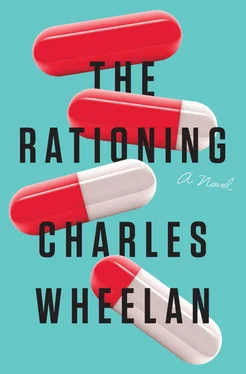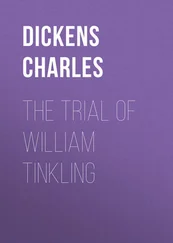Goyal and Swensen were vilified as the embodiment of evil, two guys willing to sacrifice lives in order to goose quarterly profits. The truth is subtler. Goyal and Swensen cut a corner. They did something selfish and dishonest—but they did not believe anyone would get hurt. They did not run into a crowded stadium and start firing weapons. They did not drink pitchers of margaritas at happy hour and then drive home. Their crime was the corporate equivalent of running a yellow light. They lost perspective. They were three minutes late for an appointment that did not really matter in the grand scheme of things; when the stoplight went from green to yellow, they sped up—just a little, in their eyes. The rest of the world did not figure into that calculation. Their three minutes were more important. Who knew that a group of schoolchildren might enter the crosswalk? If you think about it, the people who run yellow lights are more dangerous than the people who run red lights, because there are so many more of us.
Goyal and Swensen were in complete agreement on how their fateful conversation ended. Goyal once again insisted that Swensen take up golf. “You can’t run marathons forever. The knees are not made for it,” the CEO said.
“There is no exercise in golf,” Swensen protested.
“There is if you walk,” Goyal insisted.
“Most people take carts.”
“Not where I play, at the Wood Hollow Club. We have caddies. I can get you in like that,” Goyal said, snapping his fingers. “Your kids can use the swimming pool.”
“I don’t see the point of trying to hit a small ball into a small hole from a long distance,” Swensen joked with his CEO. The conversation drifted back to a familiar place. Levity crept into the room.
“That’s exactly the point!” Goyal exclaimed. “When I focus on hitting the ball, my mind is purged of all this nonsense.” He made a sweeping gesture across his desk.
“And then you get angry when you miss a shot.”
“Now, that is true!” Goyal laughed heartily. “Still, it’s yoga for the mind, I am telling you. This evening, I am going to the driving range. I am certain of that!”
Goyal walked his CFO to the door. According to his testimony at trial, Goyal did in fact hit two buckets of balls at the Wood Hollow driving range later that afternoon.
MY PARENTS WANTED ME TO GO TO LAW SCHOOL. I TOOK THE LSAT my senior year in college just to placate my mother. I also took a summer job working for a Washington, D.C., firm that was litigating an enormous patent infringement case in the defense industry. As a college student, I was a peon—albeit a peon billed out to the client at $75 an hour. (I was paid $15 an hour, with no benefits.) I moved boxes around. I did some background research on missile defense systems. During one three-week stretch I put fifteen thousand trial documents in chronological order. The law school interns had only slightly less menial tasks, though they were billed out at $125 an hour. Even the young lawyers did not seem to be doing a whole lot of intellectually interesting work. Our collective paper pushing did not resemble the fancy courtroom dramas on television.
The case never went to trial. All of the work was just a prelude to a negotiated settlement, a very expensive and time-consuming bluff. The settlement was very advantageous to our client, and we were supposed to be excited. Instead, most of the team was exhausted and cynical. We knew it was not our brilliant legal analysis that had brought the case to closure; neither firm wanted to roll the dice with a jury trial. We had hired an expensive jury consultant who told us that twelve laypeople would have little ability to grasp the key technical details of the case. I could have offered the same advice more cheaply. At about the same time I was putting those fifteen thousand trial documents in chronological order—lab notebooks with pages of equations, long memos with detailed weapons specifications, and the like—I had to go to the Department of Motor Vehicles to get my driver’s license renewed. As I looked around the DMV, I lost a fair bit of confidence in our prospective jury pool.
After the settlement, the firm had a massively expensive party in a ballroom at the Four Seasons, including a caviar bar and small Kobe beef sandwiches passed around on trays. There was a guy making martinis in the corner of the ballroom with boutique gins. (Unlike vodka, you really can taste the difference with gin.) I stumbled home with a perky second-year law student from Harvard whom I had been lusting after since the day I arrived at the firm. The next morning, while she was still naked in the bedroom of her small but charming Georgetown apartment, she rolled toward me and kissed me gently on the chest. I was expecting more great things. Instead, she said, “Promise me you won’t go to law school.”
That was not exactly a binding legal commitment. And it is not the story I told my parents about why I did not want to become a lawyer. Still, I did not apply to law school. I stumbled into virology almost by accident. My dad is an accountant; my mom was a marketing consultant until she quit to raise my sister and me. My people tend to be service providers, not scientists. I had never met anyone with a Ph.D. until I arrived at Dartmouth. Several years later I woke up as an economics major. The math was relatively easy for me; economics was considered to be the most direct route to Wall Street, or someplace equally lucrative and respectable. Anyone who graduated with a respectable GPA and decent social graces could tap into the impressive Dartmouth alumni network to become at least a mini-titan of finance. Guys who had spent a good portion of senior year drunk in fraternity basements were handling millions of dollars for hedge funds by homecoming of the following year (or so they said).
I am not one to shake up the social order, but it did strike me—even at the time—that most of the “career planning” going on senior year did not involve much planning, let alone introspection. Rather, it felt like a warm, comfortable current sweeping smart people gently toward investment banking, consulting, law school, and a few other low-risk, high-reward careers. When we entered as freshmen, our class dean pointed out in her matriculation speech that our class of roughly one thousand had three hundred and eleven high school valedictorians. We also supposedly had twenty-three soccer captains (which boggles the mind given the awful performance of the soccer team during my four years). I was surrounded by high achievers who, to that point in life, had excelled by doing a prescribed set of tasks faster or better than everyone else. High school is a brilliantly designed machine for beating the originality and creativity out of anyone. One does not thrive by creating original work, or inventing something, or questioning authority, or working well with others (cheating).
By senior fall at Dartmouth, all of this was bouncing around in my mind. The inner competitive streak among my high-achieving classmates had been unleashed full force. When McKinsey & Company [1] Yes, this is the very same firm where Al Goyal worked early in his career.
arrived on campus, it felt like the corporate equivalent of the Beatles’ arrival in America. All conversation revolved around which members of our class had been selected for “closed” interviews—those that were offered by invitation only. In what struck me as a cruel gesture, McKinsey also offered “open” interviews to the first twenty-five students in line at Career Services on a particular Monday morning. Scores of students lined up the night before. The weather was so bad (it would fall below freezing that night) that students at the back of the line began to hope that those at the front would get sick and leave. They actually said that out loud.
Читать дальше












